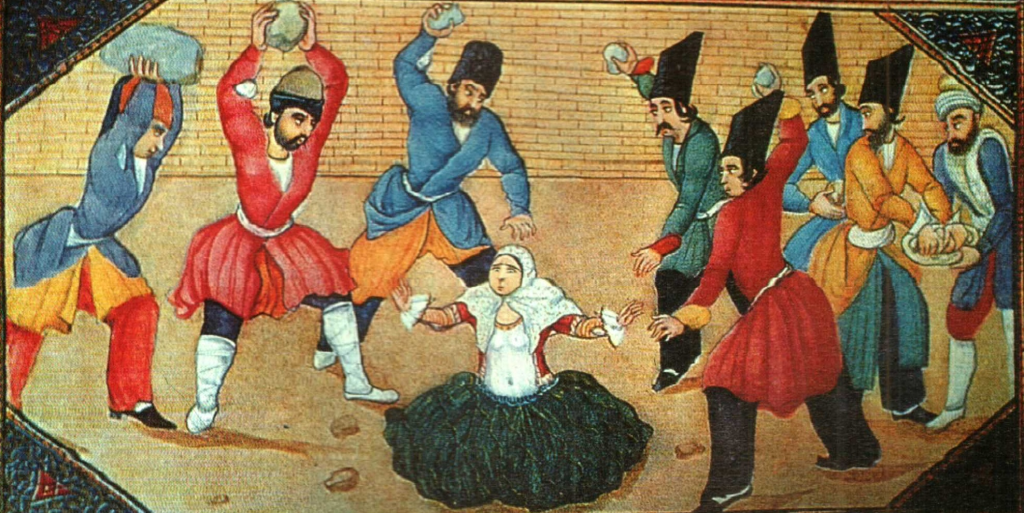
In the text of the Qur’an, there is no explicit verse prescribing the punishment of stoning to death (rajm).
📌 Here’s the explanation:
1. The Qur’an only prescribes flogging for zina (fornication/adultery).
Surah An-Nur (24:2):
“The woman and the man guilty of fornication—flog each one of them with a hundred stripes…”
There is no verse mentioning stoning.
2. Rajm is found in the Prophet’s hadiths.
In several authentic hadiths (e.g., Bukhari and Muslim), cases are reported where the Prophet ﷺ carried out stoning for married adulterers.
Thus, in classical Islamic tradition, its legal basis is found in hadith and scholarly consensus (ijma‘), not the Qur’an.
3. Reports about a “missing verse on rajm.”
Some reports mention that there once was a Qur’anic verse on stoning, but it was mansukh tilawah (its recitation was removed, but its ruling remained).
For example, Caliph Umar ibn al-Khattab reportedly said:
“If it were not that people might say ‘Umar has added to the Book of Allah,’ I would have written the verse of stoning in the mushaf…”
This has long been a source of debate among scholars and modern academics.
4. Contemporary perspectives.
Many modern scholars argue that stoning does not originate from the Qur’an but from Jewish law, which was still practiced in Medina at the time and transmitted through hadith.
The Qur’an, by contrast, clearly sets the punishment for zina at 100 lashes.
Thus, some Islamic reformists conclude that stoning should not be considered a Qur’anic law.
👉 In summary:
- Qur’an → No ruling on stoning.
- Hadith and classical fiqh → Stoning exists (for muhsan adulterers, i.e., those already married).
Comparative Views on Punishment for Zina
| Source / Perspective | Punishment | Notes |
|---|---|---|
| Qur’an (24:2) | 100 lashes for men & women who commit zina | No distinction between married (muhsan) and unmarried (ghair muhshan). No mention of stoning. |
| Hadith of the Prophet ﷺ (Bukhari, Muslim, Abu Dawud, etc.) | Stoning for married adulterers (muhsan); flogging for unmarried ones | Prophet carried out stoning on Ma’iz al-Aslami, a Ghamidiyah woman, and two Jews guilty of zina. |
| Classical scholars (Hanafi, Maliki, Shafi‘i, Hanbali) | – Unmarried adulterer → 100 lashes (Qur’an 24:2) – Married adulterer → stoning (based on hadith & consensus) | They combined Qur’an & hadith. Some held that a verse on stoning once existed but its recitation was abrogated (nasikh mansukh tilawah). |
| Umar ibn al-Khattab (hadith reports) | Affirmed that a “verse on stoning” was not in the mushaf, but its ruling remained valid | Feared people might abandon stoning because it was absent from the Qur’an. |
| Modern scholars (e.g., Muhammad Abduh, Fazlur Rahman, Nasr Hamid Abu Zayd) | Only flogging (as in Qur’an) | Reject stoning because: (1) not in Qur’an, (2) contradicts Qur’anic justice, (3) hadith reflects Jewish-Medinan legal context. |